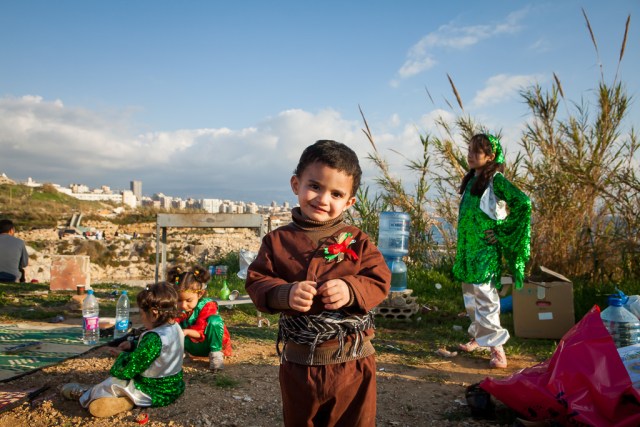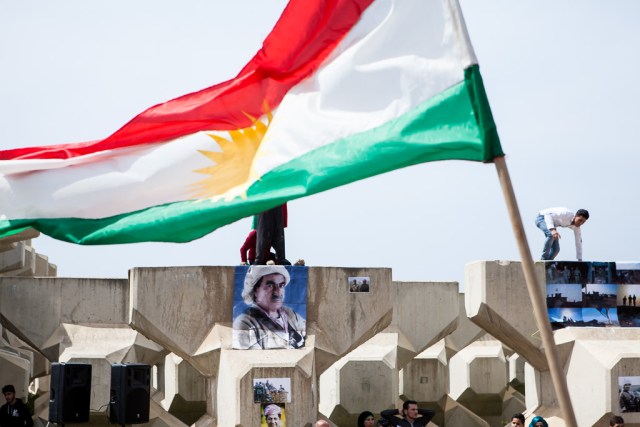Welcoming spring
Lebanon's Kurds celebrate Newroz

Under a bright blue sky, Lebanon’s Kurdish community gathered at Dalieh, a small piece of seaside land in Beirut, for the yearly marking of Newroz, the Persian and Kurdish new year. Families and friends – the large majority of whom are Syrian Kurds, coming from places like Hasakeh and Qamishli in north-eastern Syria – came together for celebrations that have grown to become an important part of Dalieh’s socio-cultural heritage.
Dalieh, which stretches down the slopes and into the sea just off the Raouche neighbourhood in western Beirut, has long been a place where people from the city gather: it attracts swimmers who come in the early mornings and all kinds of weather, divers who throw themselves off the steep rocks, groups of friends gathering around narguilehs, and tourists who have been persuaded by eager boat owners to take them on a trip outside the city’s shores. In 2014 though, Dalieh was suddenly fenced off and plans were announced for the construction of a hotel complex, effectively barring people from entering the area and putting a stop to its role as a diverse social meeting point in the city. A large-scale campaign was launched against the project; a movement that since has grown to include protests against other similar privatisations and/or illegal takeovers of public land, such as the construction of a hotel on the nearby public beach Ramlet al-Bayda.
The destiny of Dalieh is yet to be determined – for now, the fence has been removed by people going down there, and Newroz this year was celebrated the way Kurds have done for long: with music and long hours of debke, family picnics and the occasion to wear new and glittery (if a kid), slick (if a youngster) and colourful (if any of the above – or anyone else) clothes. The celebrations, while filled with joy and the anticipation of spring, were also marked by the fact that Syrian Kurds are in the middle of a dark period of violence and loss – many family members were not there, and the exile gathering in Beirut was an all but too obvious a reminder of the ongoing war and destruction in the midst of the Kurdish lands.























